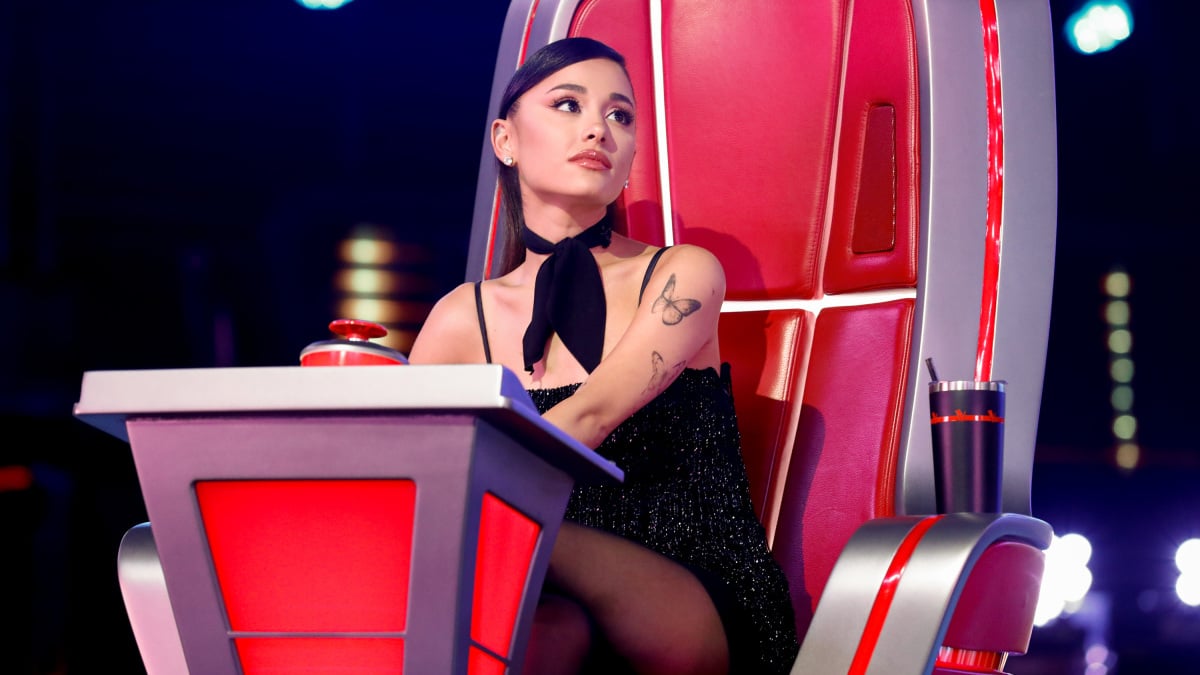Entertainment
Ariana Grande makes plea for body neutrality after slew of unsolicited comments

Ariana Grande’s taken notice of the incessant online commenters remarking on her body, and she’s had enough.
Posting to her TikTok account(Opens in a new tab) on Tuesday, the singer and actor asked people online to be more careful with their words, to acknowledge that health and beauty manifests itself in a myriad of ways, and to stop talking about people’s appearances — full stop.
“I just had wanted to address your concerns about my body, and talk a little bit about what it means to be a person with a body, and to be seen, and to be paid such close attention to,” Grande said, addressing her 31 million followers. “I think we should be gentler and less comfortable commenting on people’s bodies, no matter what. If you think you’re saying something good or well-intentioned… There are ways to compliment someone, or to ignore something you see that you don’t like, that I think we should help each other work towards,” she said. “There are many different ways to look healthy and beautiful.”
The star — who currently is shooting a movie adaptation of Wicked — also said people online should aim to keep each other “safe” by refraining from comments like these, and that online personas often don’t convey the full extent of someone’s life and health status.
Grande is just the latest celebrity amid a chorus of voices speaking directly about this type of digital discourse. In February, actor and Rare Beauty founder Selena Gomez made a similar appeal(Opens in a new tab) to online commenters via a TikTok Live, after yet another wave of chatter about the size of her body disregarded her chronic illness. “I would much rather be healthy and take care of myself and my medications are important and I believe they are what helps me. So, yeah, not a model, never will be,” she said. Gomez is now the most followed woman on Instagram(Opens in a new tab), with more than 400 million eyes on every post.
Tweet may have been deleted
(opens in a new tab)
(Opens in a new tab)
In January, Grammy-winning artist Lizzo also admonished the “tired” nature of body discourse(Opens in a new tab) on her TikTok. “I have seen comments go from ‘Oh my gosh, I liked you when you were thick. Why did you lose weight?’ to ‘Oh my gosh, why did you get a BBL? I liked your body before.’ to ‘Oh my gosh, you’re so big,'” she said. “Do you see the delusion? Do we realize that artists are not here to fit into your beauty standards?”
The list goes on: Florence Pugh(Opens in a new tab), Billie Eilish(Opens in a new tab), Taylor Swift(Opens in a new tab).
In their statements, Grande and others have alluded to two different modes of thinking among health professionals and activists, known as body positivity and body neutrality. Body positivity, a now widely-used term by individuals and brands alike, prioritizes the notion of diverse beauty and self-love. Body neutrality, on the other hand, advocates for removing any moral worth towards physical appearances, and de-emphasizing beauty or desire in favor of acceptance.
Some online pose that body positivity has lost its might as brands and ill-informed celebs have co-opted the phrase, pushing for neutrality as the default response in ways similar to Grande’s initial point. Others think it actually needs to go further and advocate for radical fat liberation(Opens in a new tab).
TikTok has become a central gathering space for those navigating these various forms of body acceptance, as well as an organizing tool among those trying to redefine the way we all discuss fitness, health, beauty, and diversity. Last year, TikTok creator Elyse Meyers went viral for her story about negative childhood body image spurred by unsolicited comments from adults in her life, begging us all to do better now. Diverse, body-positive creators are gaining more prominence in the app’s fashion(Opens in a new tab) and fitness spaces. Younger generations on the platform are both learning from, and repeating(Opens in a new tab) the mistakes(Opens in a new tab) of those past.
Meanwhile, the internet and fandom at large are experiencing a growing problem of parasocial relationships and nonconsensual “thirsting”, which put celebrities at the center of boundary-less, unsolicited conversations about sexual attraction and beauty.
Throughout it all, real people sit behind the social media profiles, magazine covers, and popular media that dominate our lives and gather the brunt of internet discourse, long before we’ve figured out its consequences.
“You never know what somebody’s going through,” Grande said in her post. “I was…at the lowest point of my life when I looked the way you consider my healthy, but that, in fact, wasn’t my healthy. I know I shouldn’t have to explain that, but I do feel like maybe having an openness and some sort of vulnerability here…something good might come from it.”
Want more Social Good stories in your inbox? Sign up for Mashable’s Top Stories newsletters today.
-

 Entertainment7 days ago
Entertainment7 days agoWhat’s new to streaming this week? (Jan. 17, 2025)
-

 Entertainment6 days ago
Entertainment6 days agoExplainer: Age-verification bills for porn and social media
-

 Entertainment6 days ago
Entertainment6 days agoIf TikTok is banned in the U.S., this is what it will look like for everyone else
-

 Entertainment5 days ago
Entertainment5 days ago‘Night Call’ review: A bad day on the job makes for a superb action movie
-

 Entertainment5 days ago
Entertainment5 days agoHow ‘Grand Theft Hamlet’ evolved from lockdown escape to Shakespearean success
-

 Entertainment6 days ago
Entertainment6 days ago‘September 5’ review: a blinkered, noncommittal thriller about an Olympic hostage crisis
-

 Entertainment6 days ago
Entertainment6 days ago‘Back in Action’ review: Cameron Diaz and Jamie Foxx team up for Gen X action-comedy
-

 Entertainment6 days ago
Entertainment6 days ago‘One of Them Days’ review: Keke Palmer and SZA are friendship goals




















